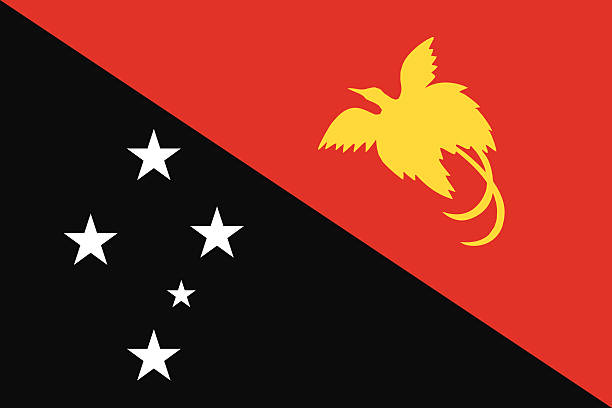Wednesday 11 October 2023
Internal Security Minister, Hon. Peter Tsiamalili has briefed Parliament on plans to formulate an Internal Security White Paper.
Mr Tsiamalili stated that the purpose of the Internal Security White Paper will be to outline and address various aspects of national security, with a specific focus on internal threats and challenges.
“A white paper can serve as a comprehensive analysis of the existing internal security landscape in PNG.
“It can identify and evaluate various threats, such as organized crime, ethnic tensions, separatist movements, or other forms of internal instability that may pose risks to the nation’s security,” Mr Tsiamalili said.
Mr Tsiamalili speaking in Parliament on 3 October, 2023 stressed that as mandated representatives of the people, all members of Parliament have a responsibility to safeguard the well-being and stability of the nation.
“It is crucial that we confront the challenges we face head-on” Mr Tsiamalili said.
He outlined the recent concerning instances of violence, theft, and drug-related offenses which he said have risen alarmingly in recent years which pose a significant threat to the safety and security of PNG citizens.
Mr Tsiamalili also noted the need to address the issue of tribal conflicts that persist in certain regions of our country.
“These conflicts, fueled by historical grievances, land disputes, and socio- economic disparities, continue to disrupt communities, displace families, and hinder the establishment of lasting peace and stability.
“It is our duty to address the root causes of these conflicts and work towards their resolution through dialogue, mediation, and equitable development initiatives”, he said.
Mr Tsiamalili assured Parliament of the Government’s commitment to upholding the internal security of PNG, utilising a multifaceted approach to effectively tackle issues and protect citizens, noting four key areas of action:
Prioritize law enforcement and enhance the capacity of our police force, taking decisive steps to combat organized crime and reduce the influence of illicit activities in our society, prioritize community engagement and empowerment, and finally strengthen regional cooperation and partnerships.
Mr Tsiamalili noted that since his appointment as Minister responsible for Internal Security it has become clear that internal security must be seen holistically.
He said that whilst the Royal Papua New Guinea Constabulary plays the lead law enforcement role, their work cuts across other national security functions under the mandate of other government agencies.
“What this means is that we must look more strategically at how we can leverage our limited resources to prevent crime from taking place.
“While the RPNGC is the primary agency responsible for internal security, other organizations such as the Papua New Guinea Defence Force (PNGDF), Immigration and Citizenship Authority, and other government agencies may also have roles and responsibilities related to internal security in the country.
“Addressing these internal security challenges requires a multi- faceted approach, including strengthening law enforcement agencies, improving governance and transparency, promoting social cohesion, and addressing socio- economic disparities.
“International support and cooperation can also play a crucial role in assisting PNG to tackle these issues effectively. And that is why we have commenced research on developing a white paper on internal security.
“At present, the Internal Security Ministry is responsible for administering the Acts (or parts of the Acts) published in National Gazette No. G690.
“There are nine Acts that I have responsibility for administering in full, and 20 Acts where I share responsibility with other ministers.
“What has become clear is that there are currently a number of laws that intersect with my ministerial responsibilities.
“Some of these are already captured in other acts such as the Criminal Code Act 1974 and its amendments, while others require official designation of ministerial responsibility to ensure effective administration.
“Therefore, the white paper on internal security shall determine an appropriate legal framework to streamline our laws and provide a clear and unambiguous line of delegation of powers allowing for shared ministerial responsibility”, Mr Tsiamalili said.


